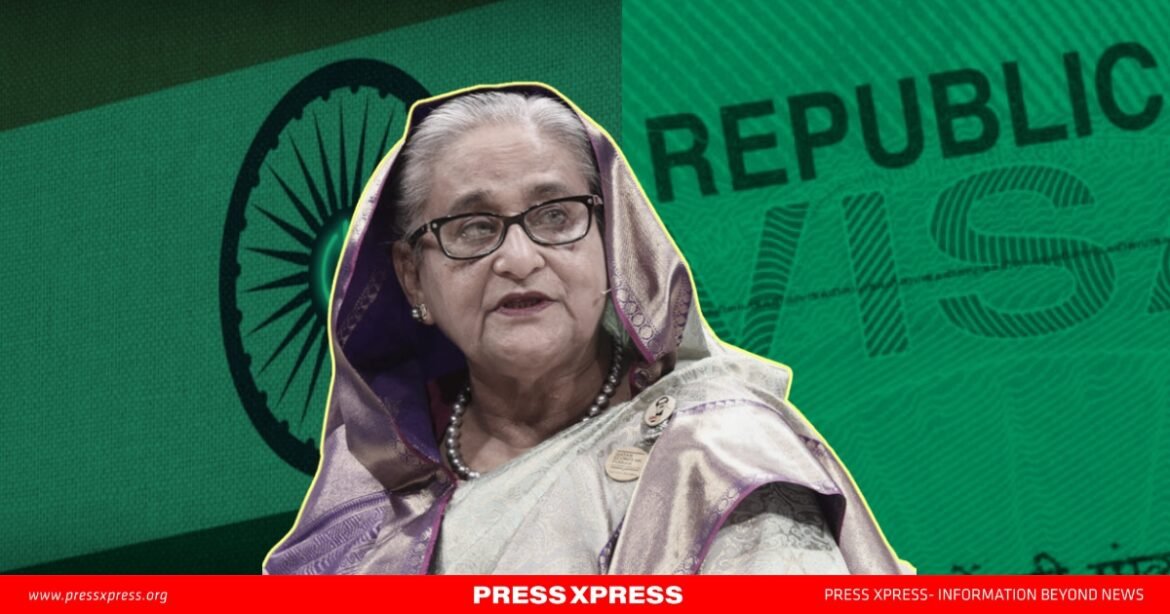India has extended the visa of Sheikh Hasina, the former Prime Minister of Bangladesh, amidst growing calls from Dhaka for her extradition. Sheikh Hasina, 77, has been in India since stepping down from her position last August following protests in Bangladesh by some vested interest.
Sources familiar with the matter confirmed the visa extension, noting that it was facilitated by India’s Union Home Ministry and the Foreigners Regional Registration Office (FRRO), reports Hindustan Times.
Arriving at Hindon Airbase on August 5, Sheikh Hasina was initially inaccessible to the public and media. It is reported that she has since been relocated to a secure residence in Delhi. Despite speculation, Indian officials have dismissed claims that she is seeking asylum, emphasizing that India lacks specific legal provisions for handling asylum requests.
Extradition Request from Dhaka
The Bangladeshi interim government, led by Nobel laureate Muhammad Yunus, formally requested Sheikh Hasina’s extradition via a note verbale sent to India’s External Affairs Ministry on December 23, 2024. However, as per Indian diplomatic sources, the request has not been accompanied by the necessary legal documentation to proceed with the matter.
Reports from Indian media suggest that the Indian government is unlikely to act on the extradition request, citing the lack of procedural compliance from Dhaka. External Affairs Ministry spokesperson Randhir Jaiswal underscored that any decision regarding Sheikh Hasina’s future plans remains hers to make, further indicating India’s cautious approach in managing this sensitive issue.
Bangladesh’s Internal Moves Against Sheikh Hasina
In recent developments, Bangladesh’s Department of Immigration and Passports canceled Sheikh Hasina’s passport, along with those of 96 others, citing their alleged involvement in violent incidents during protests in July. Yunus’s deputy press secretary, Abul Kalam Azad Majumder, confirmed the revocations and further linked Sheikh Hasina to the alleged killings during the July unrest in Bangladesh..
Moreover, Bangladesh’s International Criminal Tribunal has intensified its scrutiny of the former prime minister. On January 6, the tribunal issued a second arrest warrant for Sheikh Hasina, demanding her appearance alongside 11 others on February 12. Additionally, the National Independent Investigation Commission announced plans to seek permission to interrogate Sheikh Hasina in India concerning a 2009 incident involving the Bangladesh Rifles, which led to the deaths of 74 people.
A Complex Diplomatic Tightrope
The developments surrounding Sheikh Hasina reflect the delicate balance India must maintain in its relationship with Bangladesh, a key regional partner. While India’s visa extension indicates a humanitarian gesture, Dhaka’s increasing pressure through diplomatic and legal channels signals an intensifying political dynamic.
Sheikh Hasina’s enduring legacy in Bangladesh as a proponent of stability and economic development continues to polarize opinions. Supporters see her as a bulwark against extremism, while detractors accuse her of authoritarian tendencies. Her departure from Bangladesh and the subsequent calls for her extradition have added a layer of complexity to India-Bangladesh ties, underscoring the interconnectedness of domestic politics and regional diplomacy.
Strategic Implications for India
New Delhi’s cautious stance in addressing Dhaka’s requests reflects its broader geopolitical considerations. As a long-time advocate of strong bilateral relations with Bangladesh, India has refrained from escalating tensions, opting instead for a wait-and-watch approach. The evolving situation will test India’s ability to balance its strategic interests with its commitment to regional stability and democratic values.
For now, Sheikh Hasina’s future in India remains uncertain, but her presence in India continues to serve as a focal point for both domestic and international political discourse. As Dhaka intensifies its efforts, India’s measured response will likely define the trajectory of its bilateral relationship with Bangladesh in the months to come.


